Prisoner swap with US unrelated to frozen funds release: Iran rights official
Iran’s top human rights official says a recent agreement between Tehran and Washington on the exchange of prisoners has nothing to do with the release of Iranian assets frozen abroad.
Kazem Gharibabadi, secretary of Iran's High Council for Human Rights, made the remarks in an interview with the Arabic-language al-Alam television news network, roundly dismissing the notion that Iran has agreed to release the American prisoners in order to have access to its assets.
The issue of Iran’s financial resources that have been held hostage abroad are unconnected with the prisoner swap deal, he said.
Gharibabadi noted that the Islamic Republic entered negotiations with the American side about the exchange of prisoners only because it supports its citizens who have been jailed in the US on bogus charges.
Last month, the Iranian Foreign Ministry stated that Tehran had received the “necessary guarantees” that its assets frozen abroad due to the US sanctions will be unblocked under an agreement mediated by regional friends.
The ministry confirmed the ongoing process of releasing $6 billion worth of Iran’s funds that had been frozen in South Korea after the previous US administration of Donald Trump withdrew unilaterally from the 2015 Iran nuclear deal in May 2018.
Anti-Iran MKO terrorist group
Elsewhere in his remarks, Gharibabadi stated that the Mujahedin-e-Khalq (MKO) terrorist group, like other terror outfits, is based in Western countries and enjoys full support of certain Western states.
“We believe that Westerners draw on these groups as a tool in order to reach their foreign policy objectives. These terrorist groups lack the capacity to play a supporting role for the foreign policy of the West and the United States as their advocates,” the top Iranian official said.
He said the MKO terrorists must be accountable for their criminal actions, noting that they have martyred more than 17,000 innocent people in different parts of Iran.
Gharibabadi also pointed to the decision by Branch 1 of Tehran’s Criminal Court to bring to trial 104 MKO members, including the ringleader of the terror cult Maryam Rajavi, stating that the deadline for them to introduce defense lawyers to the court expired a few days ago.
The top Iranian rights official said the decision to openly hold the trial of the MKO members for their terrorist actions depends on the court itself.
He also praised the position of the Albanian government against the MKO, stating that Albanian authorities finally realized that the group is of a terrorist nature and its presence there poses serious threats to the Southeastern European country’s peace and national security.
The MKO has carried out numerous terrorist attacks against Iranian civilians and government officials since the victory of the Islamic Revolution in 1979. Out of the nearly 17,000 Iranians killed in terrorist attacks over the past four decades, about 12,000 have fallen victim to the MKO’s acts of terror.
On June 20, Albanian police forces entered the MKO camp, known as Ashraf-3, near Tirana due to its engagement in “terror and cyberattacks” against foreign institutions. Authorities seized 150 computer devices linked to terrorist activities.
At least one person was killed and dozens of others were injured during the clashes at the camp. More than a week later, the police entered the camp again and security forces were deployed at the entrance to the camp to control all vehicles leaving the site.
Albania’s Prime Minister Edi Rama later said the MKO must leave the country if it wants to use Albanian soil to fight against Iran, adding that his country has no intention of being at war with Iran and “does not accept anyone who has abused our hospitality.”
The European Union, Canada, the United States and Japan had previously listed the MKO as a “terrorist organization.”
In 2012, the group was taken off the US list of terrorist organizations. The EU followed suit, removing the group from its list of terrorist organizations.
Albania’s Prime Minister Edi Rama later said the MKO must leave the country if it wants to use Albanian soil to fight against Iran, adding that his country has no intention of being at war with Iran and “does not accept anyone who has abused our hospitality.”
The European Union, Canada, the United States and Japan had previously listed the MKO as a “terrorist organization.”
In 2012, the group was taken off the US list of terrorist organizations. The EU followed suit, removing the group from its list of terrorist organizations.
Hamid Nouri’s case
Gharibabadi also said Swedish authorities do not have any compelling and persuasive evidence to keep Hamid Nouri, a former Iranian judiciary official, behind bars, terming the trial and subsequent detention of the 62-year-old Iranian citizen as “politically-motivated.”
“The Islamic Republic believes Mr. Nouri was innocently arrested in Sweden as he did not commit any crime. The proceedings took more than a year and a half from the time when Swedish government officials arrested Mr. Nouri, until a verdict was passed against him. It all took so long because of the fact that Stockholm did not have any evidence to incarcerate Mr. Nouri. Should it have convincing evidence, the ruling would have been issued much sooner.”
The secretary of Iran's High Council for Human Rights also said the Islamic Republic considers Nouri's detention as a measure in support of terrorism, as MKO terrorists are behind the scenario.
The complaint against Nouri was lodged by two high-profile members of the terrorist group, who submitted it to the Stockholm prosecutor, and he ordered the arrest of the former Iranian judiciary official as a result, Gharibabadi said.
Nouri was arrested upon arrival at Stockholm Airport in November 2019 and was immediately imprisoned.
Swedish authorities alleged that he had been involved in the execution and torture of MKO members.
On July 14, 2022, a Swedish court sentenced Nouri to life imprisonment.
The court, which has been described by Iranian officials as illegal, convicted Nouri of so-called war crimes and crimes against humanity, based on allegations leveled against him by the MKO.
Nouri has been put in solitary confinement since his illegal arrest.
Indictment for General Soleimani’s assassins
Gharibabadi also underlined that the legal complaint against terrorists who assassinated Iran's top anti-terror commander Lieutenant General Qassem Soleimani and his companions is complete, and was presented to a special branch of Tehran Judiciary Court a few months ago.
He said the hearings will start within the next two months, and the first part of the trials will focus on American defendants, most notably former President Donald Trump, former State of Secretary Mike Pompeo, and former commander of the United States Central Command (CENTCOM) General Kenneth McKenzie.
General Soleimani, commander of the Quds Force of Iran’s Islamic Revolution Guards Corps (IRGC), Abu Mahdi al-Muhandis, the second-in-command of Iraq’s Popular Mobilization Units (PMU), and their companions were assassinated in a US drone strike authorized by Trump near Baghdad International Airport on January 3, 2020. Both commanders were highly revered across West Asia due to their key role in fighting the Daesh Takfiri terrorist group in the region, particularly in Iraq and Syria.
Iran’s political legitimacy comes from ballots and popular will, not foreign powers
VIDEO | Press TV's news headlines
VIDEO | The reckless US
Qalibaf: Recent unrest a 'complementary link' in 12-day war against Iran
Ex-Israeli war minister: Iranian missiles inflicted heavy losses
Trump launches 'Board of Peace' seen as bid to control Gaza
Senior general vows swift response to any aggression on Iran
US federal immigration agents detain 5-year-old boy in Minnesota


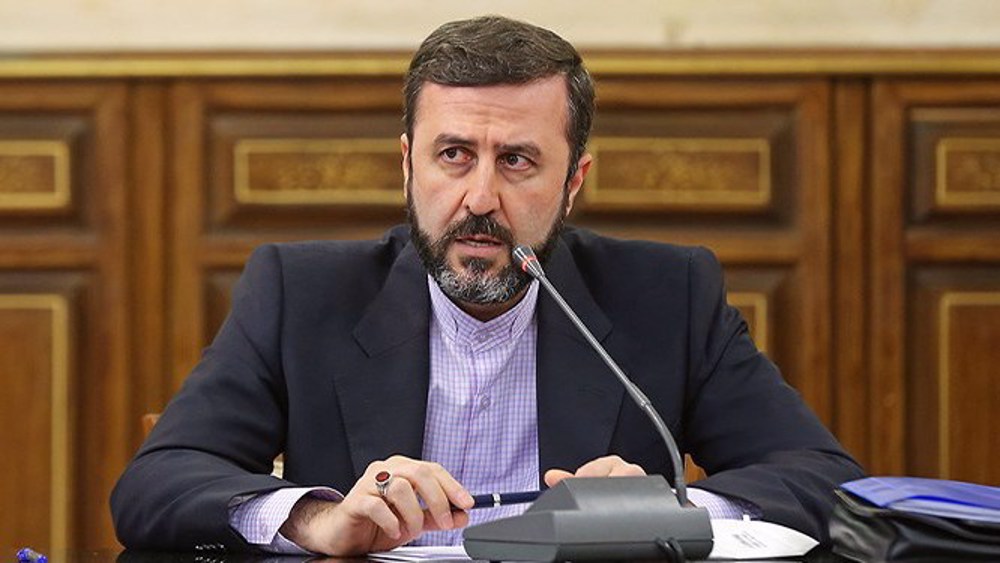

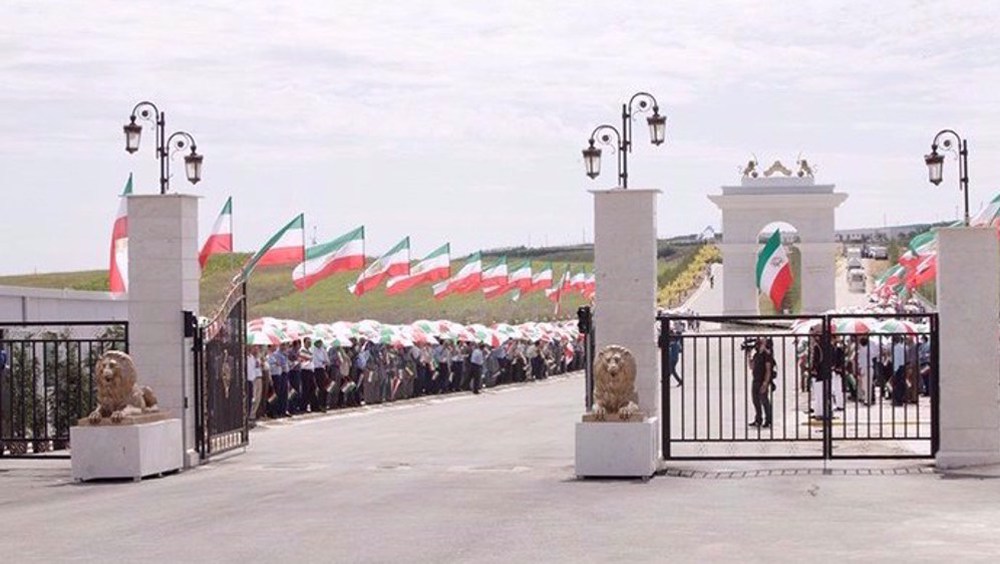
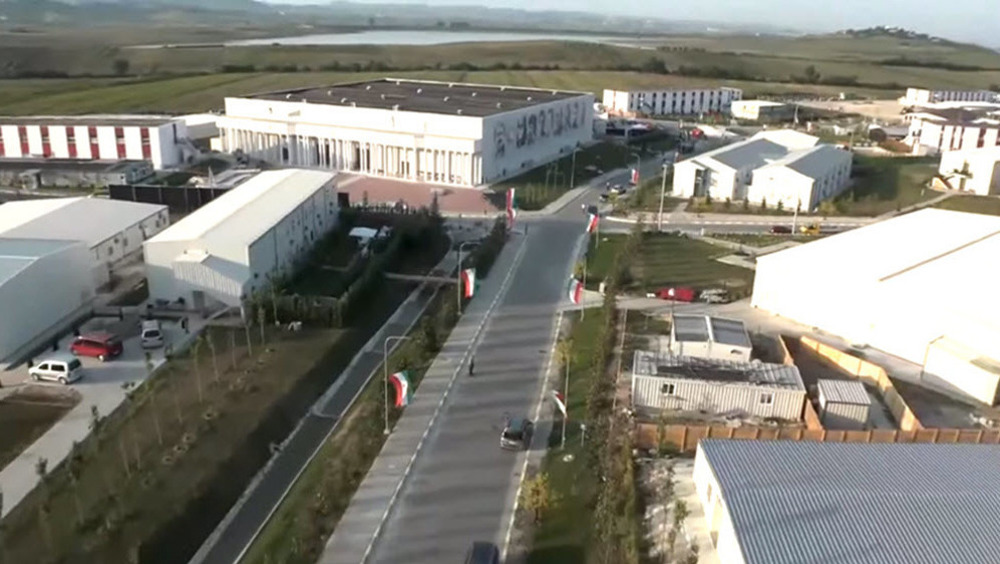
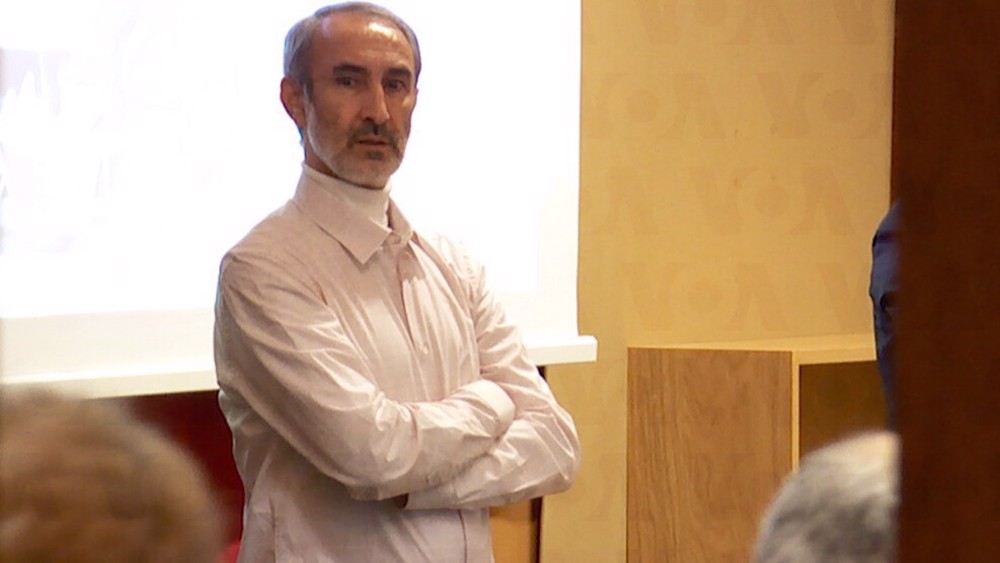
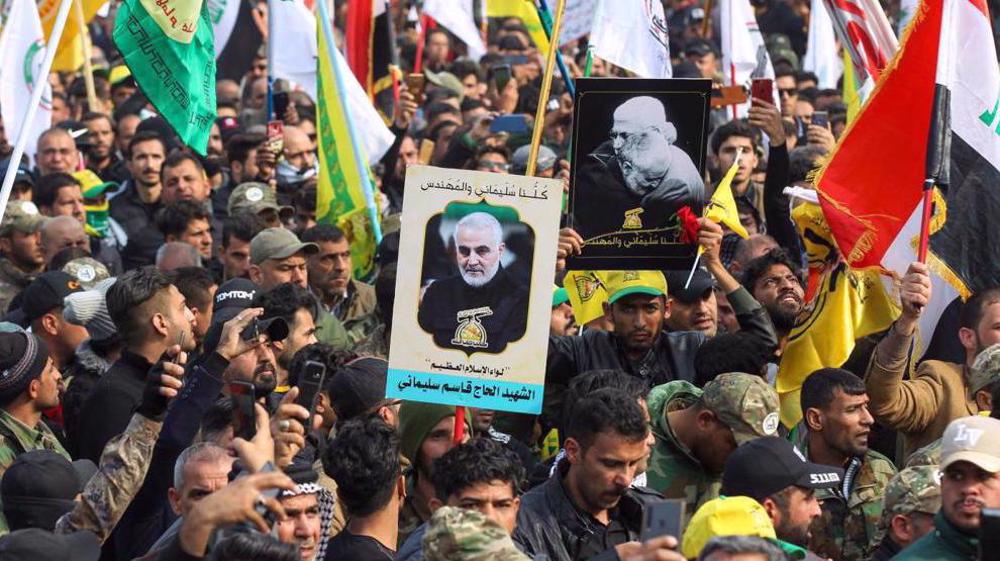
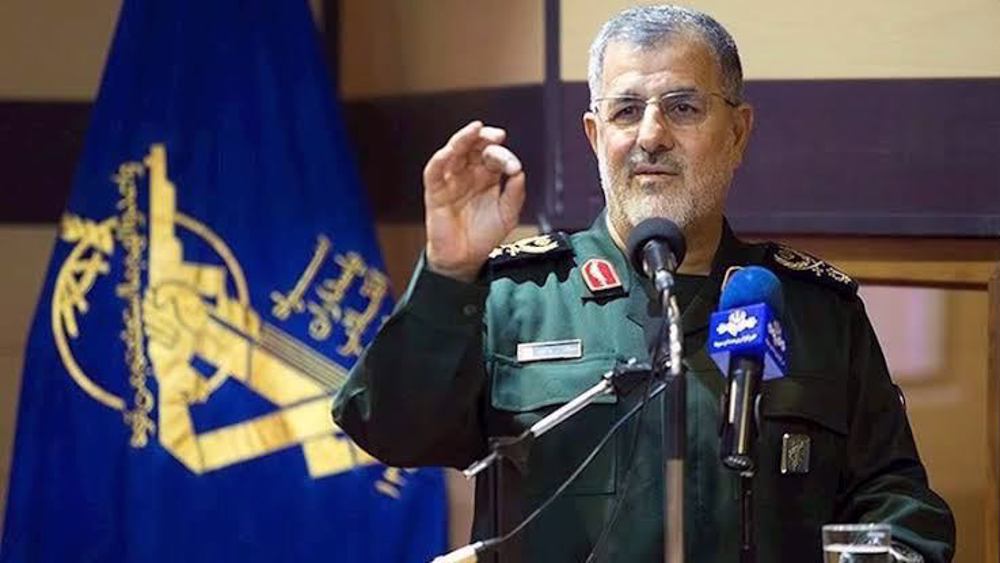
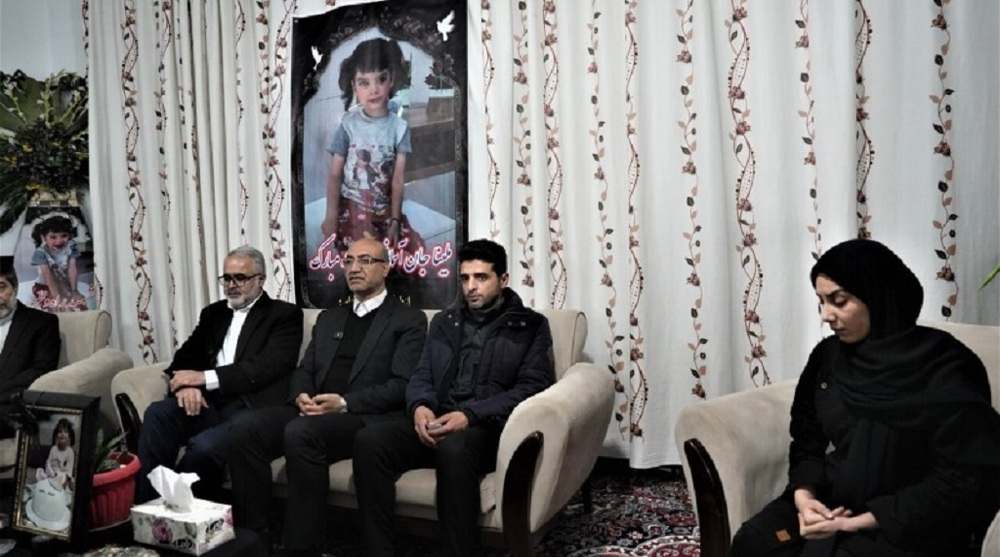
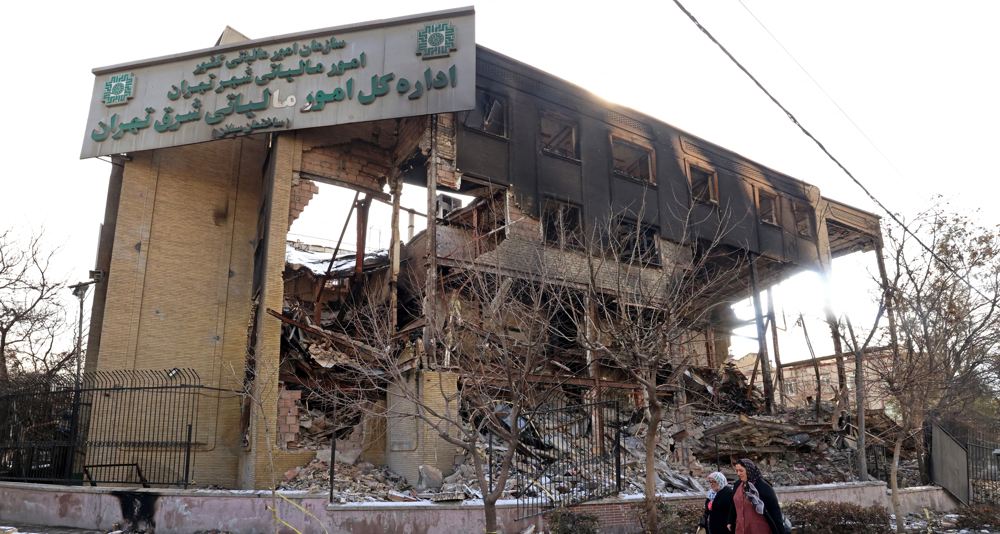



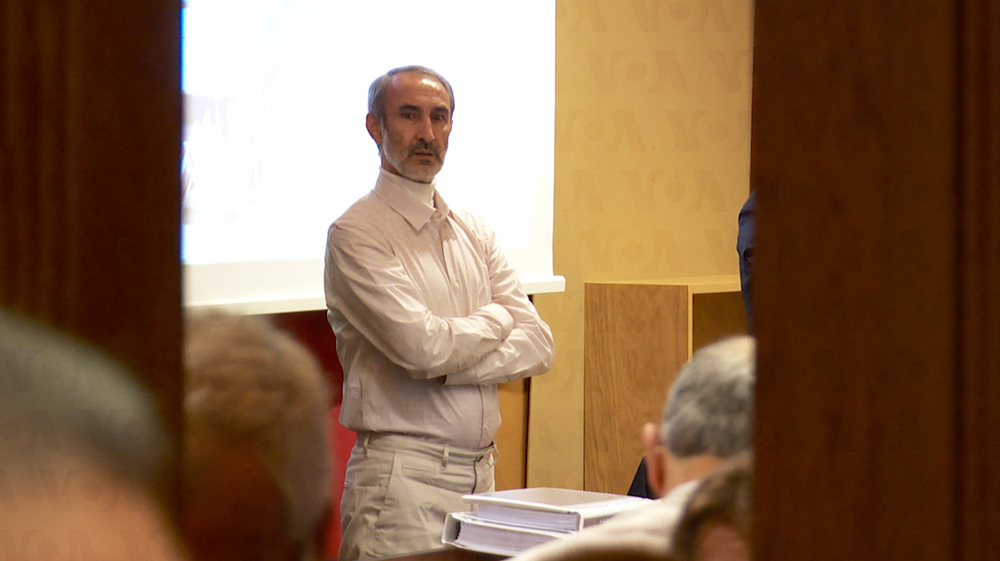
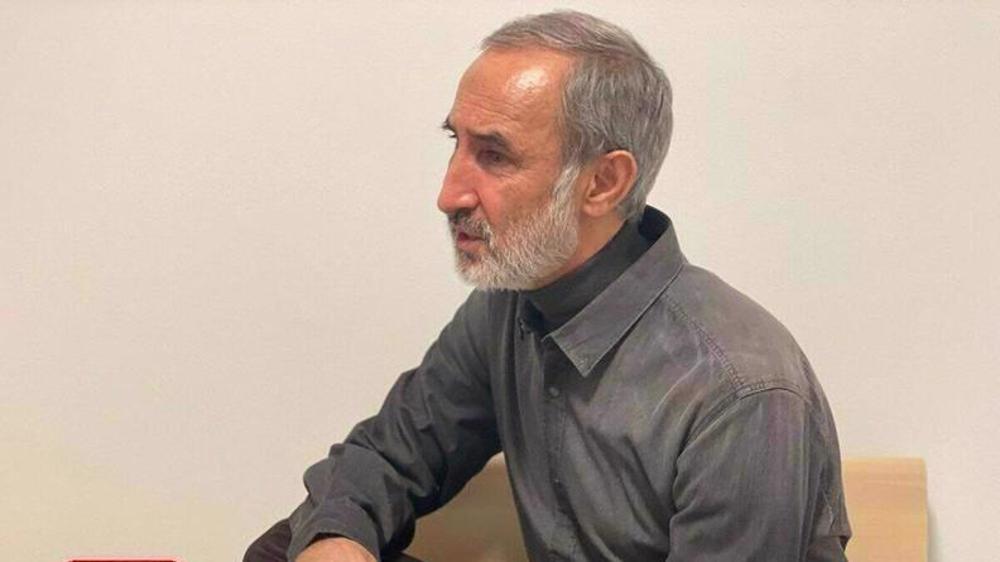
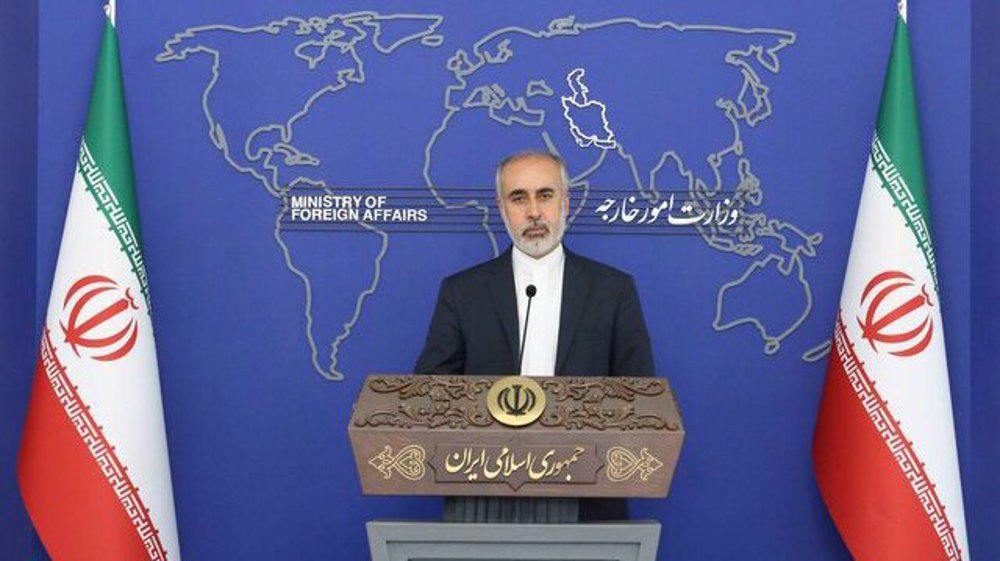
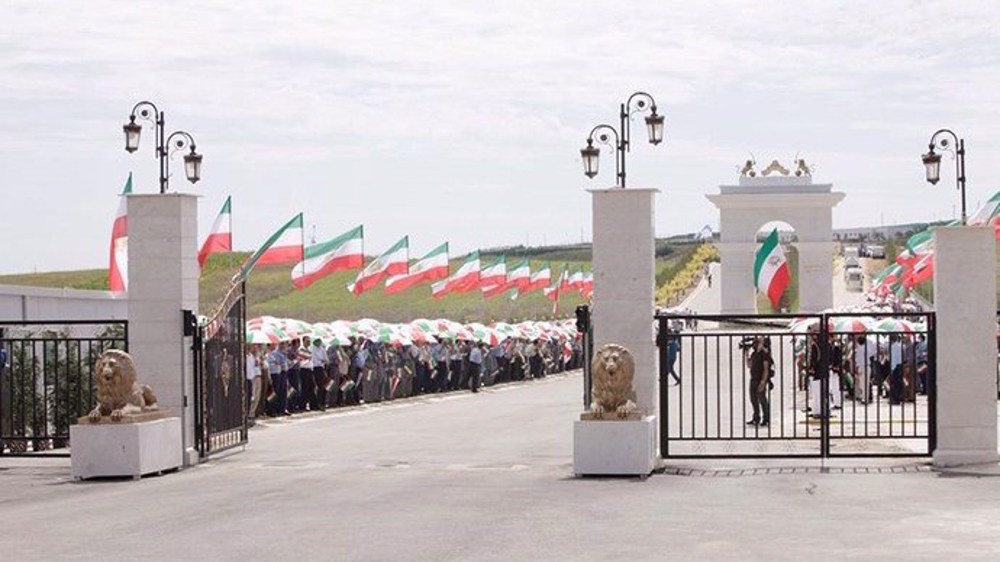
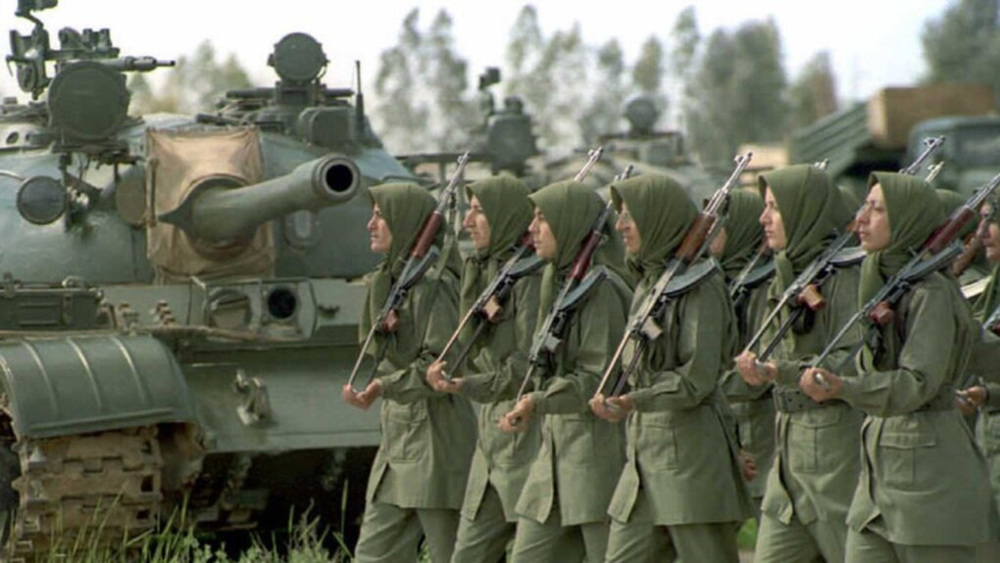
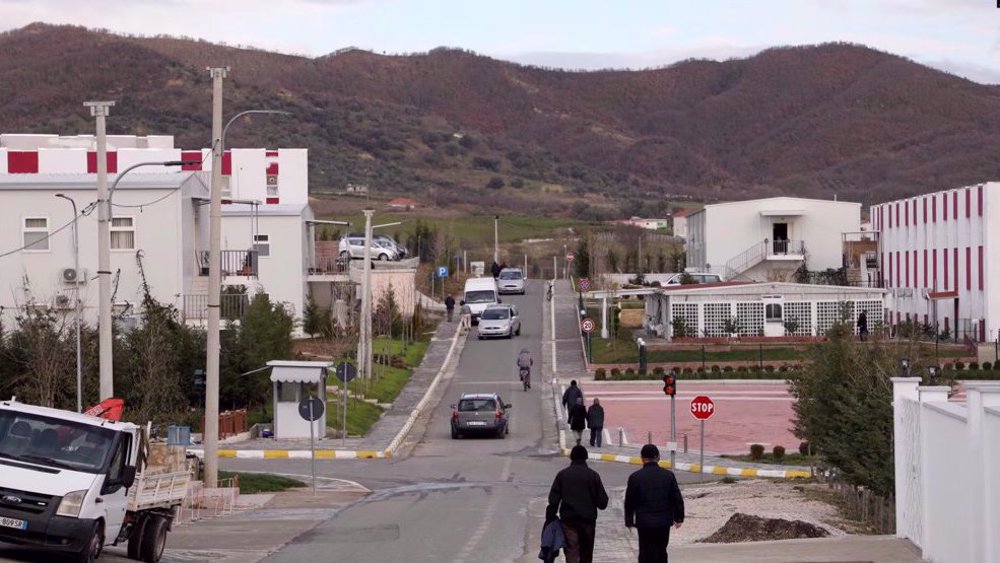
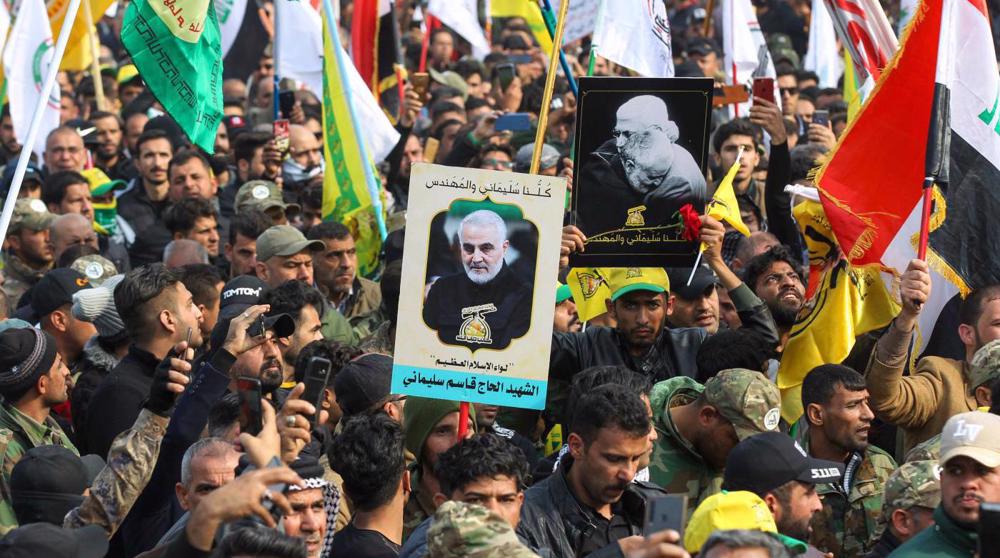
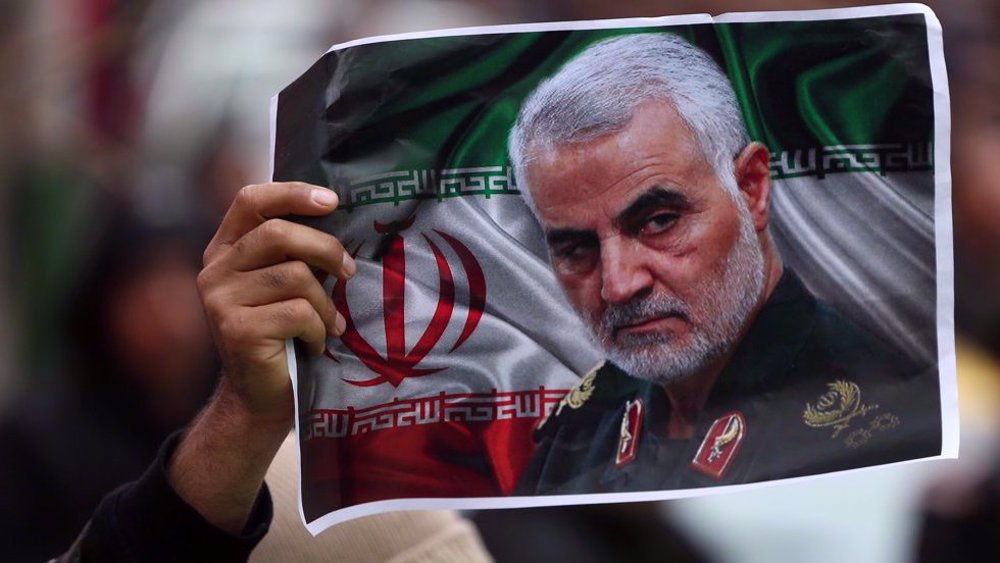
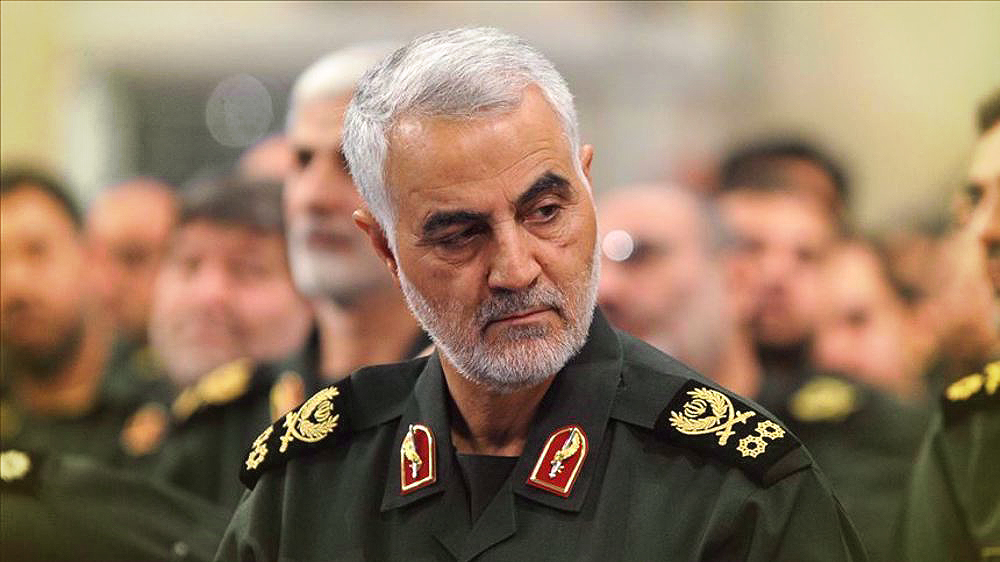

 This makes it easy to access the Press TV website
This makes it easy to access the Press TV website